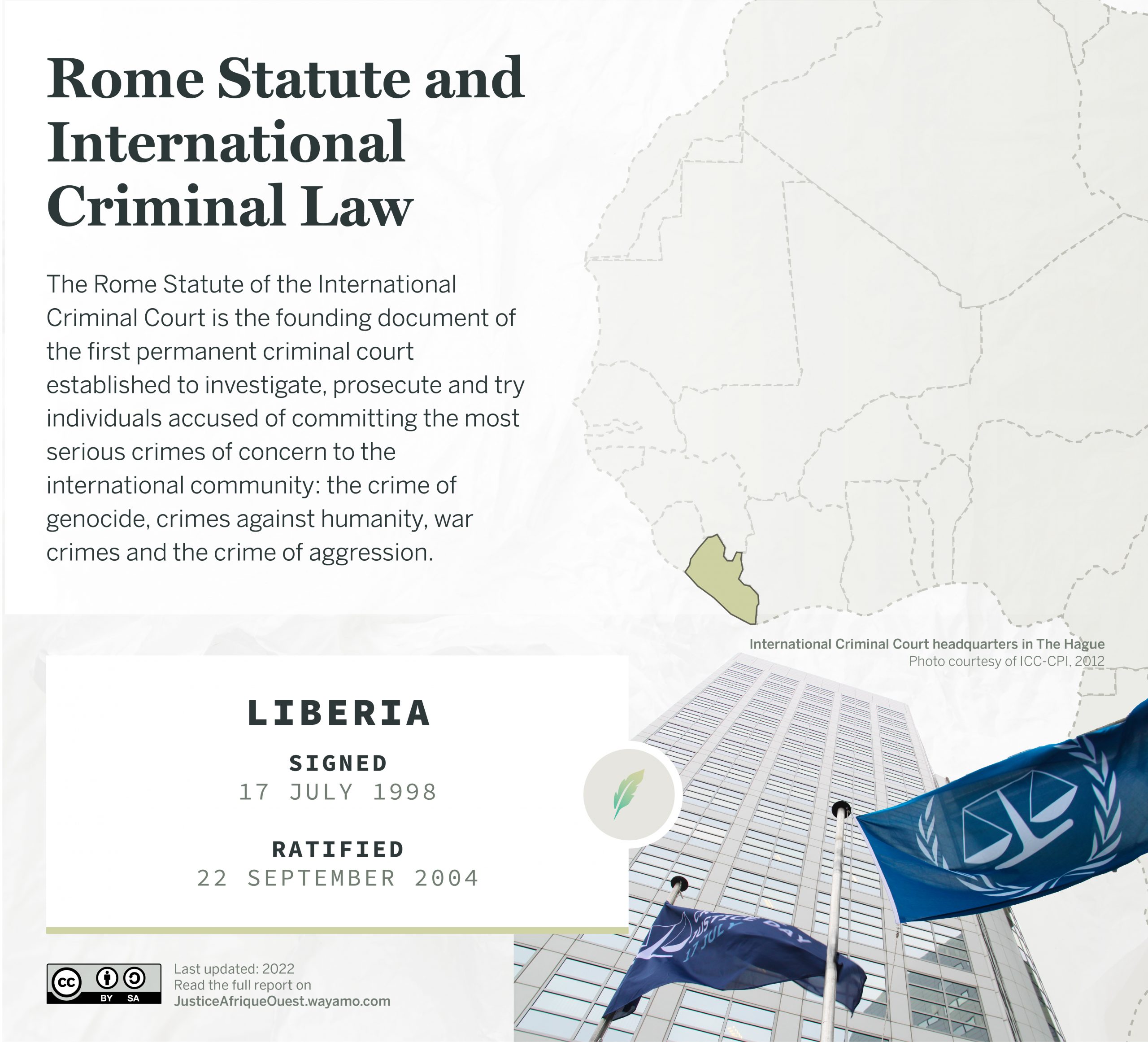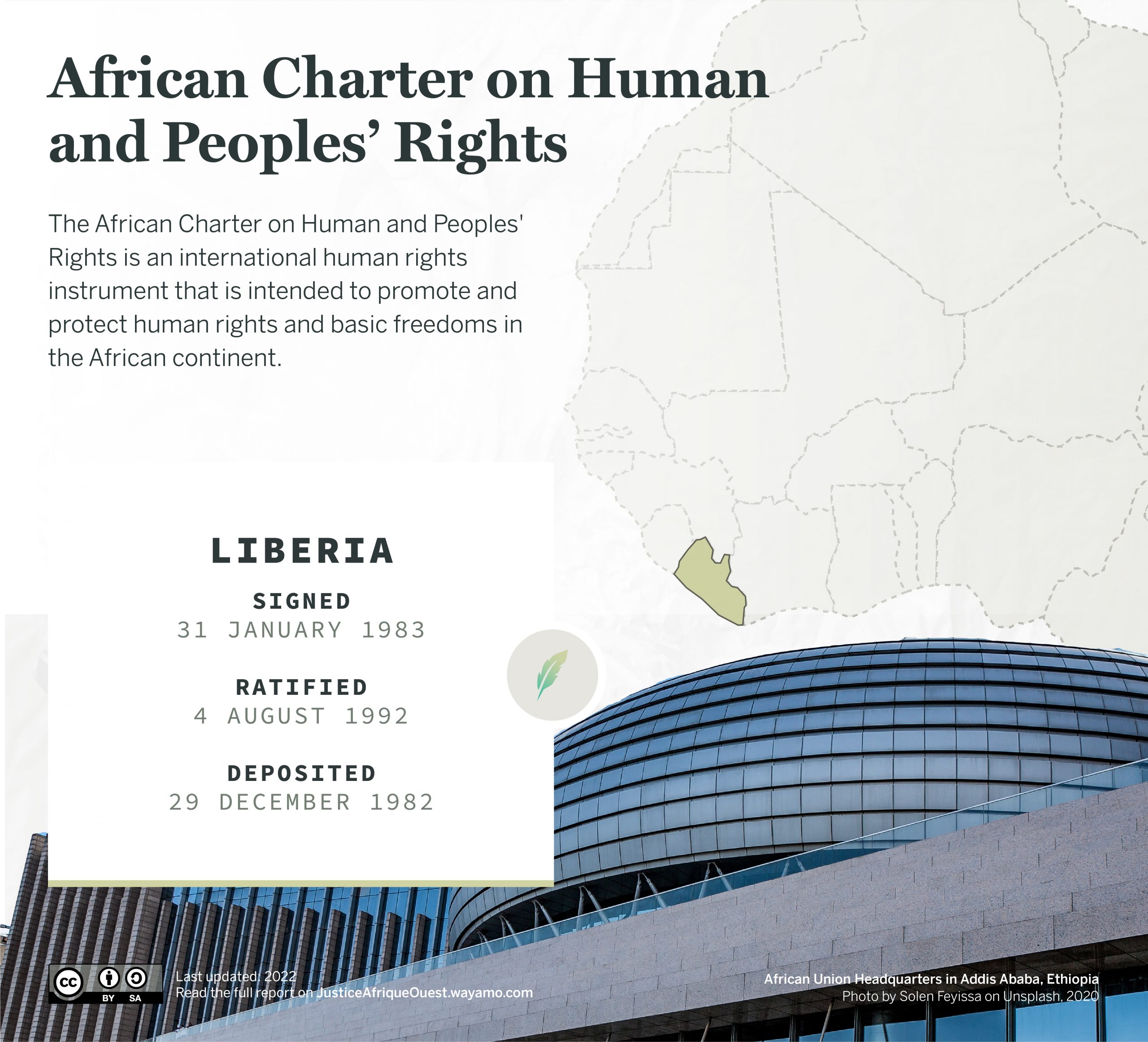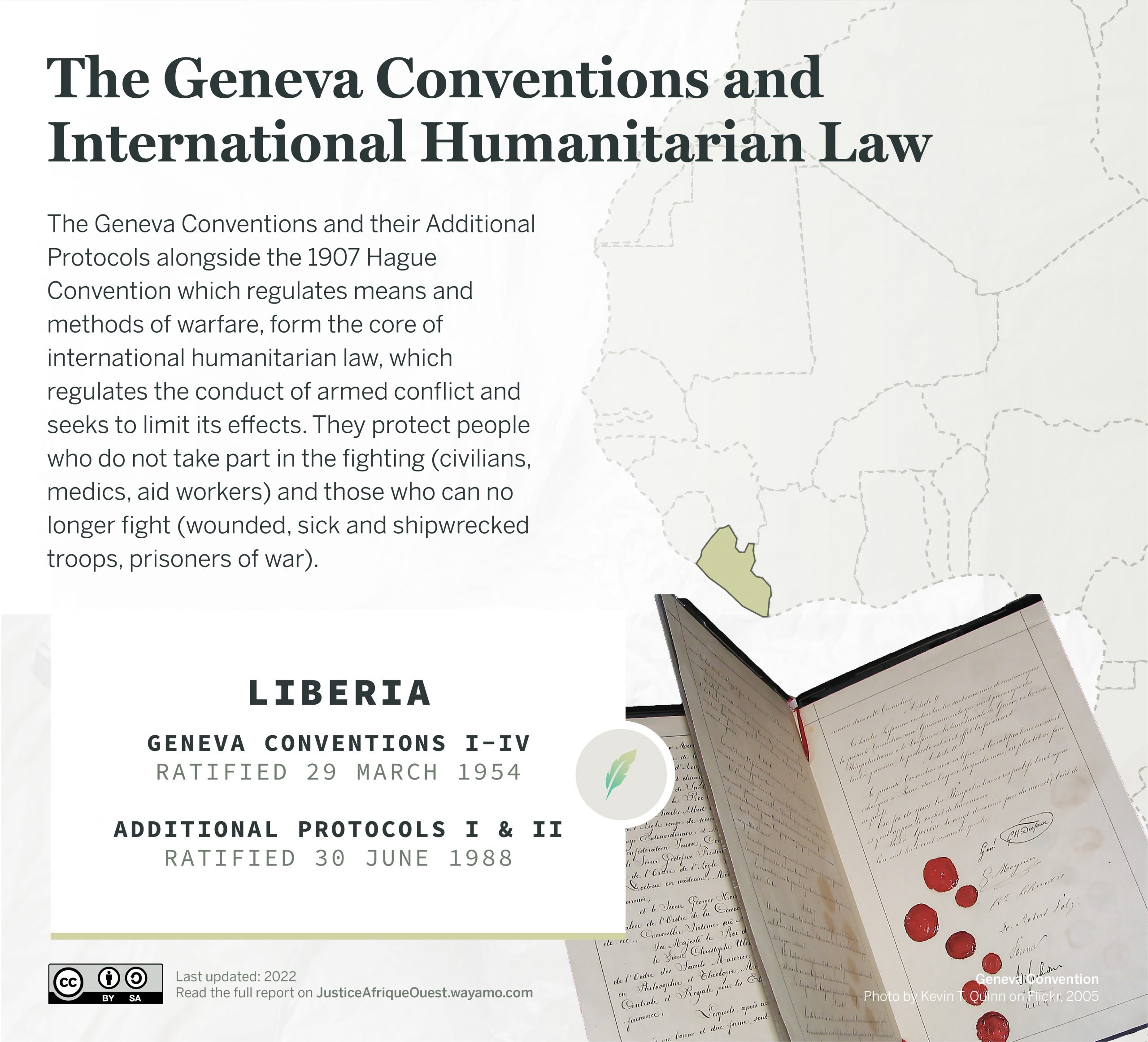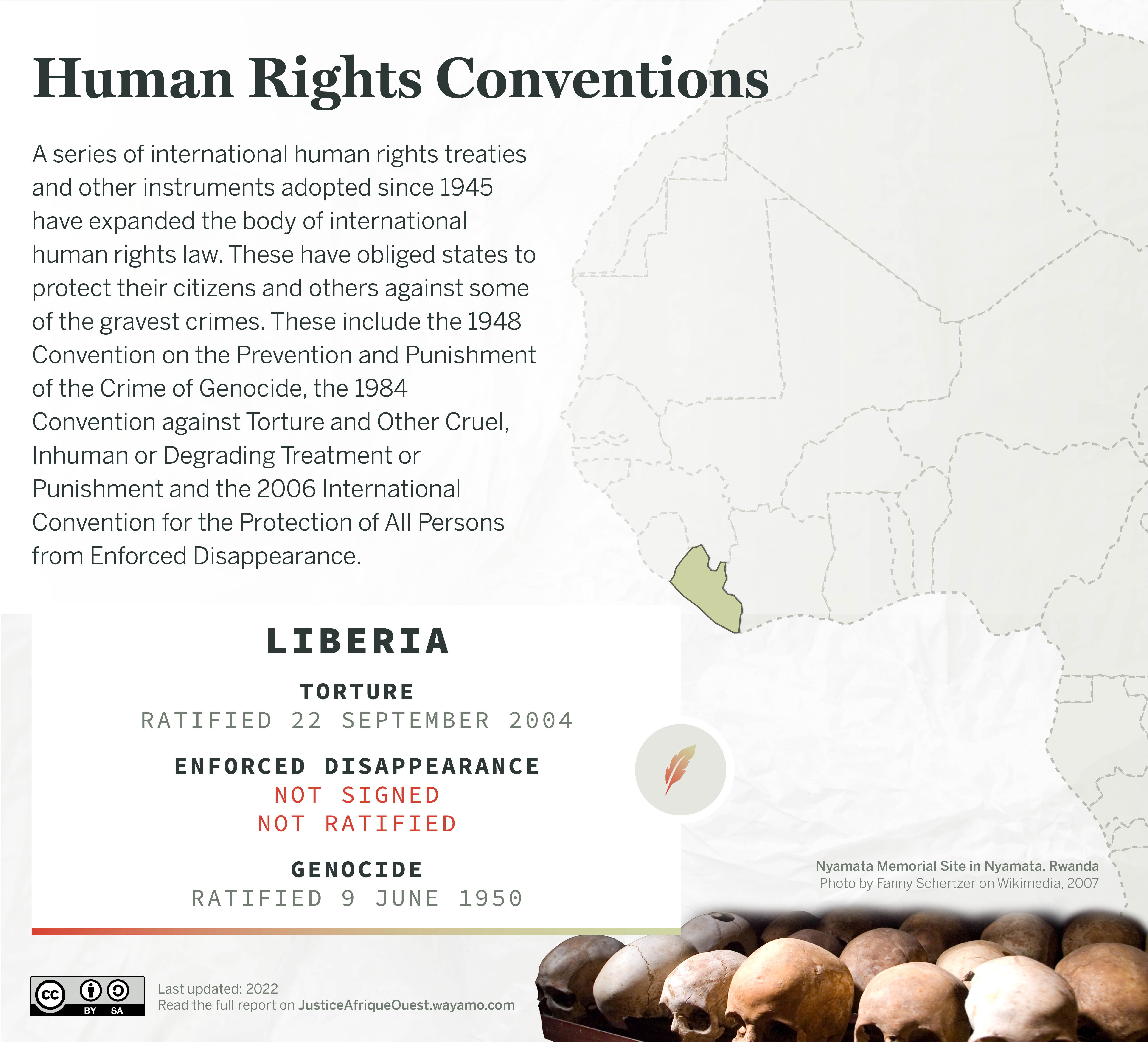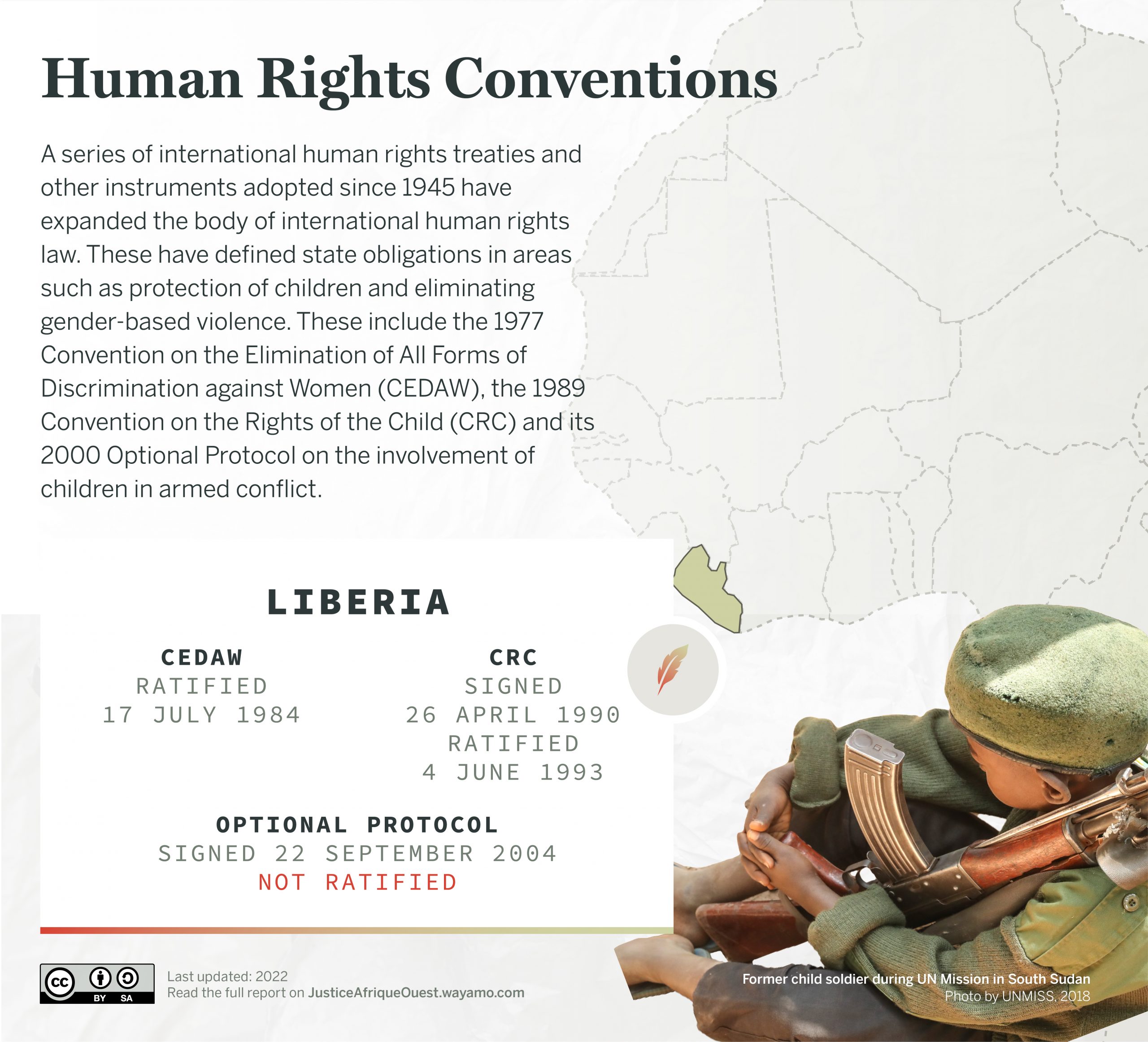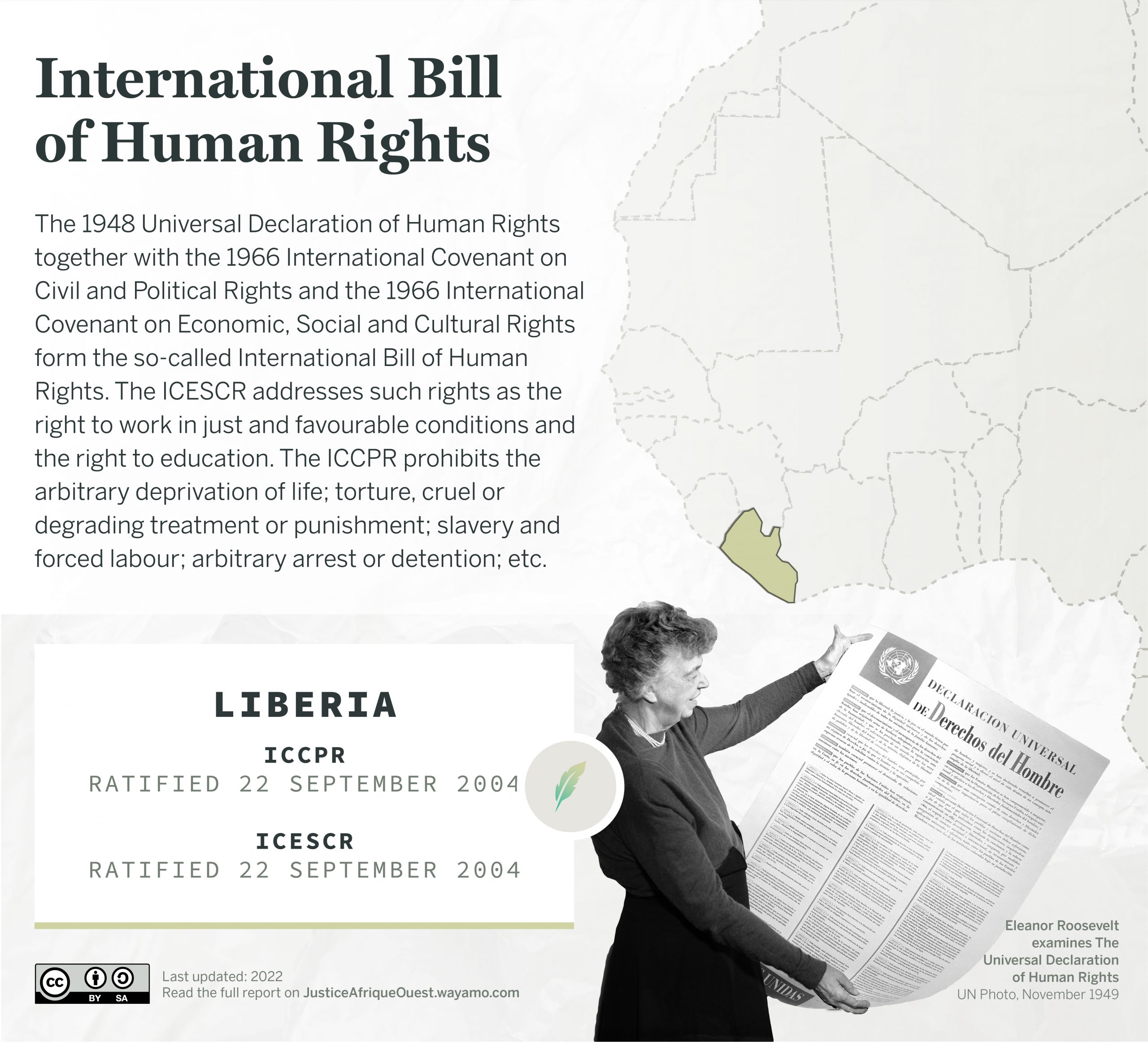Justice in foreign courts
Trials for International Crimes under the principle of Universal Jurisdiction
As Liberians continue to wait for justice at home nearly 20 years after the end of the conflict, the search for justice has continued further afield. Several criminal trials are being pursued in foreign courts under the principle of universal jurisdiction, which allows States to try offenders for serious crimes under international law, even in the absence of a personal or territorial link to the offence.
The Swiss NGO, Civitas Maxima, together with its Liberian partner, the Global Justice and Research Project, have been at the forefront in seeking justice in foreign jurisdictions for crimes committed in Liberia during the civil war. They conduct investigations and collect witness statements from Liberian victims, which they then use to build cases against suspected perpetrators in foreign courts.24 As a result, criminal complaints for war crimes and crimes against humanity have been launched against suspects in several European countries, including France, Belgium and Switzerland.
There have also been successful cases against Liberian defendants in the USA, such as the conviction in 2008 of Chuckie Taylor, son of Charles Taylor, for committing torture and related acts while he was the head of the Anti-Terrorist Unit in Liberia; he was sentenced to 75 years imprisonment in January 2009 for his crimes.25
Former ULIMO Commander Mohammed Jabbateh and former NPFL-CRC leader Thomas Wowieyu were also convicted of fraud for immigration-related offences after omitting to mention their roles in the Liberian civil war. A jury convicted Jabbateh in October 2017, and he was sentenced in April 2018 to 30 years in prison.26 Woewiyu was convicted in July 2018 for his crimes , but died in April 2020 before sentencing.27
In March 2012, George Boley, the current senator for Grand Gedeh county in Liberia and former leader of the Liberian Peace Council, which had been active during Liberia’s civil war, was deported by the US authorities for immigration-related offences. An immigration judge found him inadmissible and deportable on grounds of recruitment and use of child soldiers, a violation of the U.S. Child Soldiers Accountability Act of 2008, and for the commission of extrajudicial killings in Liberia in the 1990s.28
In June 2021, the first conviction for war crimes against a Liberian defendant, Alieu Kosiah, was confirmed by a Swiss Court. Kosiah, who had been resident in Switzerland was charged with 25 counts of war crimes including rape, murder, looting and recruitment of child soldiers, allegedly committed in Lofa County Liberia between 1993 and 1996 while he was an ULIMO commander. He was sentenced to 20 years in prison for his crimes.29
Cases are pending against other accused persons, including Martina Johnson, former frontline commander of the NPFL who faces war crimes and crimes against humanity charges in Belgium for acts committed during ‘Operation Octopus’ in 1992.30 In France, proceedings are pending against former ULIMO commander Kunti K. – charged with torture, use of child soldiers, and murder committed between 1993 and 1997.31
Proceedings against Sierra Leonean and former Revolutionary United Front (RUF) Commander Gibril Massaquoi for alleged war crimes committed during the second Liberian civil war, culminated in an acquittal. Massaquoi received immunity for his cooperation in the case against members of the former rebel group, the Armed Forces Revolutionary Council (AFRC) before the Special Court for Sierra Leone and thereafter received asylum in Finland. He had not, however, received immunity for crimes committed in Liberia and was arrested in 2020 and charged with war crimes including murder, rape and aggravated violations of human rights. His trial began on 1 February 2021 in Finland with part of the hearing being held in Liberia.32
With judgement in the case still pending, the accused was released by the Finnish Court in February 2022. By the time the judgement was delivered by the Court on 29 April 2022, his acquittal was all but expected. The Massaquoi case broke new ground by having the court visit the locations where the crimes were alleged to have been committed and providing an opportunity for Liberians to “see justice being done”. Ultimately, with the acquittal of the accused and the possibility that he may get compensation for time spent in detention; the case has come under heavy criticism for certain missteps by the prosecution, including shoddy investigations, questionable witness testimony and historical inaccuracies.33


